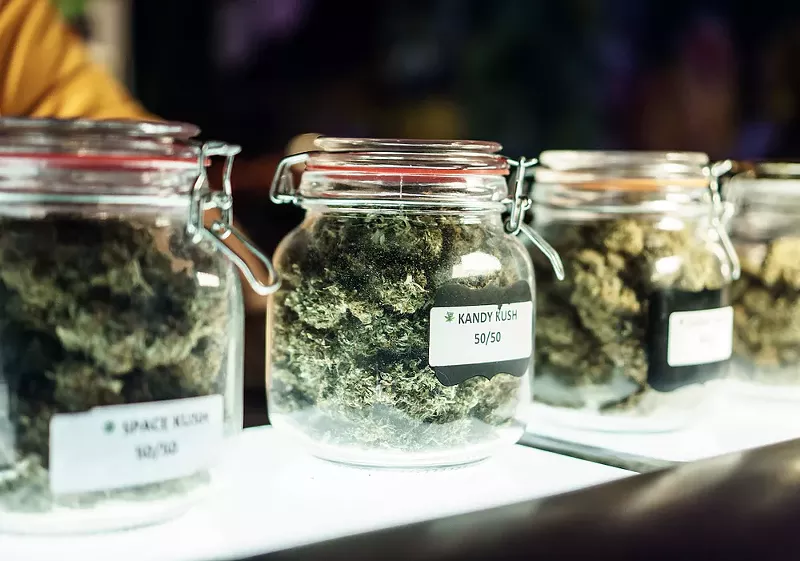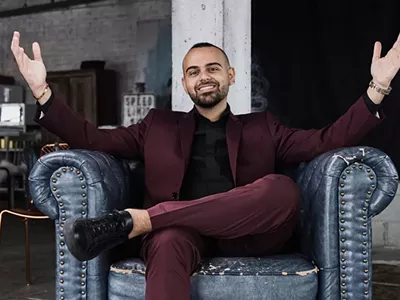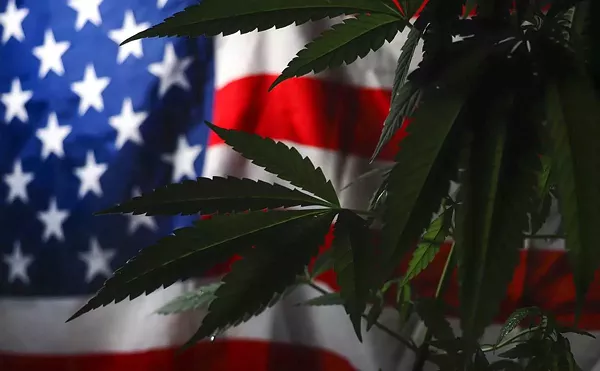
Audio By Carbonatix
[
{
"name": "GPT - Leaderboard - Inline - Content",
"component": "35519556",
"insertPoint": "5th",
"startingPoint": "3",
"requiredCountToDisplay": "3",
"maxInsertions": 100,
"adList": [
{
"adPreset": "LeaderboardInline"
}
]
}
]
The city of Detroit on Monday moved one step closer to allowing recreational marijuana dispensaries and other cannabis businesses to open.
The Public Health and Safety Committee voted 2-1 to advance a proposed ordinance to the full City Council for a vote.
The ordinance would enable the city to provide licenses for people to open dispensaries, grow operations, testing labs, consumption lounges, and other cannabis-related businesses.
During a three-hour public hearing, more than 35 people spoke out about the ordinance. Some said they opposed marijuana businesses opening in a city already struggling with drug abuse. Others said the ordinance didn’t go far enough to ensure that longtime Detroiters get licenses.
Under the ordinance, the city would issue licenses to as many as 76 recreational dispensaries and 30 licenses to consumption lounges and micro-businesses. There is no limit on the number of licenses for growers, processors, secured transporters, safety compliance facilities, marijuana event organizers, and temporary marijuana events.
Councilwoman Mary Waters voted against advancing the ordinance to the full council, saying many people were unaware of the hearing and didn’t have an opportunity to speak. She called for a second hearing, but her motion was denied.
“It’s a very delicate issue. It’s a very emotional issue for a lot of Detroiters,” Waters said. “I want to do this on behalf of the people.”
Councilwoman Gabriela Santiago-Romero, who chairs the committee, said the council still has time to address concerns from the community.
“This is not perfect,” Santiago-Romero said. “This is a beginning. This is a start. There are plenty of opportunities to make amendments in the future.”
The ordinance comes eight months after a federal judge indefinitely blocked the city from approving applications for cannabis businesses, saying the previous ordinance is “likely unconstitutional.”
Under the original ordinance, licensing preference was given to longtime Detroiters in an effort to ensure that residents played a key role in the legalized marijuana industry. But the policy resulted in a lawsuit that argued the residency requirements are unconstitutional and discriminatory.
U.S. District Judge Bernard A. Friedman agreed, saying the ordinance “gives an unfair, irrational, and likely unconstitutional advantage to long-term Detroit residents over all other applicants.”
Councilman James Tate introduced the newest ordinance, which he said strikes a balance between equity for Detroiters and opportunities for others who aren’t longtime residents to get a license to operate a dispensary, a grow operation, a testing lab, and other cannabis-related businesses.
The new ordinance provides two avenues to receive a license. One is for longtime residents who won’t compete against non-residents for a license. They will be eligible for city assistance with business plans, networking opportunities, and reduced licensing costs.
The other avenue is for non-residents.
The new ordinance also enables business partnerships between residents and non-residents.
Stay connected with Detroit Metro Times. Subscribe to our newsletters, and follow us on Google News, Apple News, Twitter, Facebook, Instagram, or Reddit.







